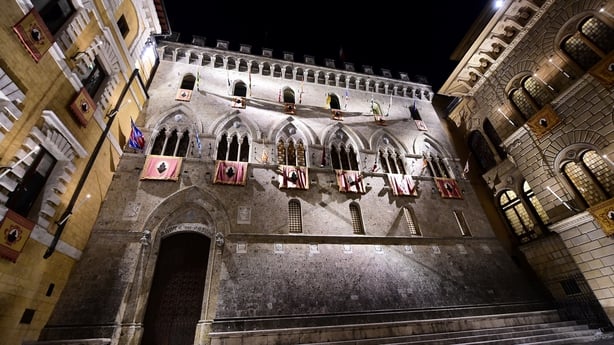Monte dei Paschi di Siena shares today soared on their market return after a 10-month hiatus, but stayed well below the price Italy paid to bail out its fourth-largest bank.
The world's oldest bank's shares last traded in Milan in December 2016 when Monte dei Paschi had to turn to Rome for help after failing to find buyers for a €5 billion share issue needed to keep it afloat.
Shares in the Tuscan bank opened at €4.10 today, which will constitute the reference price for the session, and then rose to as much as €5.24, up 28%.
That price is above the €4.28 level at which the stock was valued last month during an auction held to set the payment due to investors who bought insurance against the bank's default.
It is, however, well below the €6.49 paid by the state in August when it injected €3.85 billion into Monte dei Paschi, implying a large paper loss for taxpayers.
The loss is even bigger for Monte dei Paschi's junior bondholders, including insurer Assicurazioni Generali, who were hit by a mandatory debt-to-equity swap due to European Union rules that require investors in a bank to bear losses before any state aid.
The stock was priced at €8.65 in the conversion and the bank raised €4.47 billion through it.
To shield some retail bondholders, the state is buying out their shares in exchange for Monte dei Paschi's senior debt, thus raising its stake to 68% and the average price paid to around €7 a share.

Weakened by mismanagement, a derivatives scandal and bad debts, Monte dei Paschi has been at the heart of Italy's banking crisis and its rescue removed the biggest threat to the country's financial system.
To gain approval for the bailout, Monte dei Paschi agreed to a restructuring plan with EU authorities that envisages cutting 5,500 jobs and selling €26 billion in bad debts to reach a net profit of more than €1.2 billion in 2021.
The bank warned in documents published ahead of the re-listing that new European Central Bank rules requesting automatic writedowns of bad debts may put its targets at risk.
The bank said the new rules, currently under consultation and due to apply from next year only to newly-classified soured loans, may force it to set aside more money than expected against potential loan losses.

